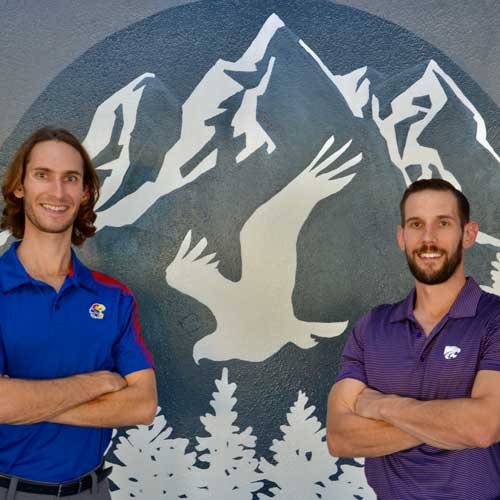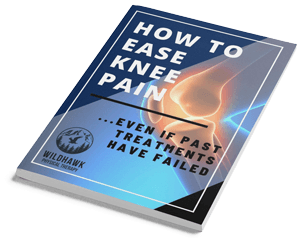
Introduction
Embark on an enlightening journey with WildHawk Physical Therapy as we unravel the intricacies of protein intake—a cornerstone in the pursuit of muscle mass. In this comprehensive blog post, we delve into the importance of protein, understand the role it plays in muscle development, and provide you with a strategic blueprint to optimize protein intake for maximal gains.
Understanding the Essence of Protein: The Muscle Builder
Protein, composed of amino acids, is the fundamental building block for muscle tissue. Its role extends beyond mere sustenance; protein is a vital catalyst in the process of muscle synthesis, repair, and growth. For individuals aspiring to gain muscle mass, understanding the significance of protein is the first step toward a well-crafted approach.
Setting the Stage: Assessing Your Muscle Building Goals
- Defining Your Objectives: Tailoring Protein Intake to Your Goals
- Before diving into protein requirements, define your muscle-building goals. Are you aiming for lean muscle development, hypertrophy, or maximizing strength gains?
- Different goals may necessitate varied protein intake strategies, emphasizing the need for a tailored approach.
- Understanding Your Body Composition: A Personalized Approach
- Assess your current body composition. Individuals with higher lean body mass may have different protein requirements than those with lower muscle mass.
- Tailoring protein intake based on your unique body composition ensures a more precise and effective strategy.
Decoding Protein Requirements: The Science Behind Muscle Gain
- Establishing Baseline Protein Needs: A General Guideline
- The American College of Sports Medicine recommends a protein intake of 1.2 to 2.2 grams per kilogram of body weight for athletes engaged in intense training.
- Understanding your baseline protein needs forms the foundation for personalized adjustments.
- Adapting to Training Intensity: Matching Protein to Effort
- Intense training, especially resistance and strength training, increases protein requirements. Higher training intensity creates micro-tears in muscle fibers, and adequate protein is crucial for repair and growth.
- Tailor protein intake based on the intensity and frequency of your workouts.
- Protein Timing: The Window of Opportunity
- Utilize the anabolic window— the period post-exercise when the body is more receptive to nutrient absorption.
- Consuming protein-rich meals or supplements within this window enhances muscle protein synthesis, facilitating optimal recovery.
- Protein Quality Matters: Embracing Complete Proteins
- Focus on consuming complete protein sources that provide all essential amino acids. Animal products like meat, poultry, fish, eggs, and dairy are exemplary complete protein sources.
- Plant-based protein sources can be combined strategically to create complete protein profiles.
Tailoring Protein Intake: A Personalized Blueprint

- Calculating Your Protein Needs: An Individualized Approach
- Calculate your daily protein needs based on your body weight, training intensity, and goals.
- A formulaic approach, such as 1.6 to 2.2 grams of protein per kilogram of body weight, serves as a starting point for customization.
- Distribution Across Meals: Spreading the Wealth
- Distribute your daily protein intake evenly across meals to optimize muscle protein synthesis throughout the day.
- Spreading protein consumption supports sustained energy, muscle repair, and growth.
- Adjusting Based on Training Phases: Periodization of Protein Intake
- During different training phases— bulking, cutting, or maintenance— adjust your protein intake to align with specific goals.
- Higher protein intake during a bulking phase supports muscle growth, while maintaining a sufficient intake during a cutting phase preserves lean muscle mass.
Potential Challenges and Solutions: Navigating the Protein Landscape
- Digestive Sensitivities: Exploring Protein Sources
- If you experience digestive issues with certain protein sources, explore alternative options.
- Plant-based proteins, such as legumes, tofu, or quinoa, may be suitable for those with dairy or meat-related sensitivities.
- Cost Considerations: Budget-Friendly Protein Choices
- Opt for cost-effective protein sources, such as eggs, canned tuna, or legumes, to meet your protein requirements without straining your budget.
- Balancing affordability and nutritional value ensures sustainable adherence to your protein goals.
Conclusion
In conclusion, the art of optimizing protein intake for muscle gain is a nuanced and personalized journey. By understanding the science behind protein requirements, tailoring your approach to individual goals, and addressing potential challenges, you can unlock the full potential of protein as a catalyst for muscle development. At WildHawk Physical Therapy located in Asheville, NC, we celebrate your commitment to achieving your muscle gain aspirations and stand ready to support you on this transformative nutritional journey.
Frequently Asked Questions:
Q: Is there such a thing as too much protein?
A: While protein needs vary, excessively high protein intake may strain the kidneys over time. It’s advisable to stay within the recommended range and consult with a healthcare professional if considering significantly higher amounts.
Q: Can I meet my protein needs solely through plant-based sources?
A: Yes, a well-planned plant-based diet can provide adequate protein. Combining different plant sources ensures a complete amino acid profile. Consider consulting with a nutritionist to optimize plant-based protein intake.
Q: Should I consume protein supplements, and if so, when is the best time?
A: Protein supplements can be beneficial, especially if meeting daily protein requirements through whole foods is challenging. The post-exercise period is an opportune time for protein supplementation to enhance recovery and muscle protein synthesis.










